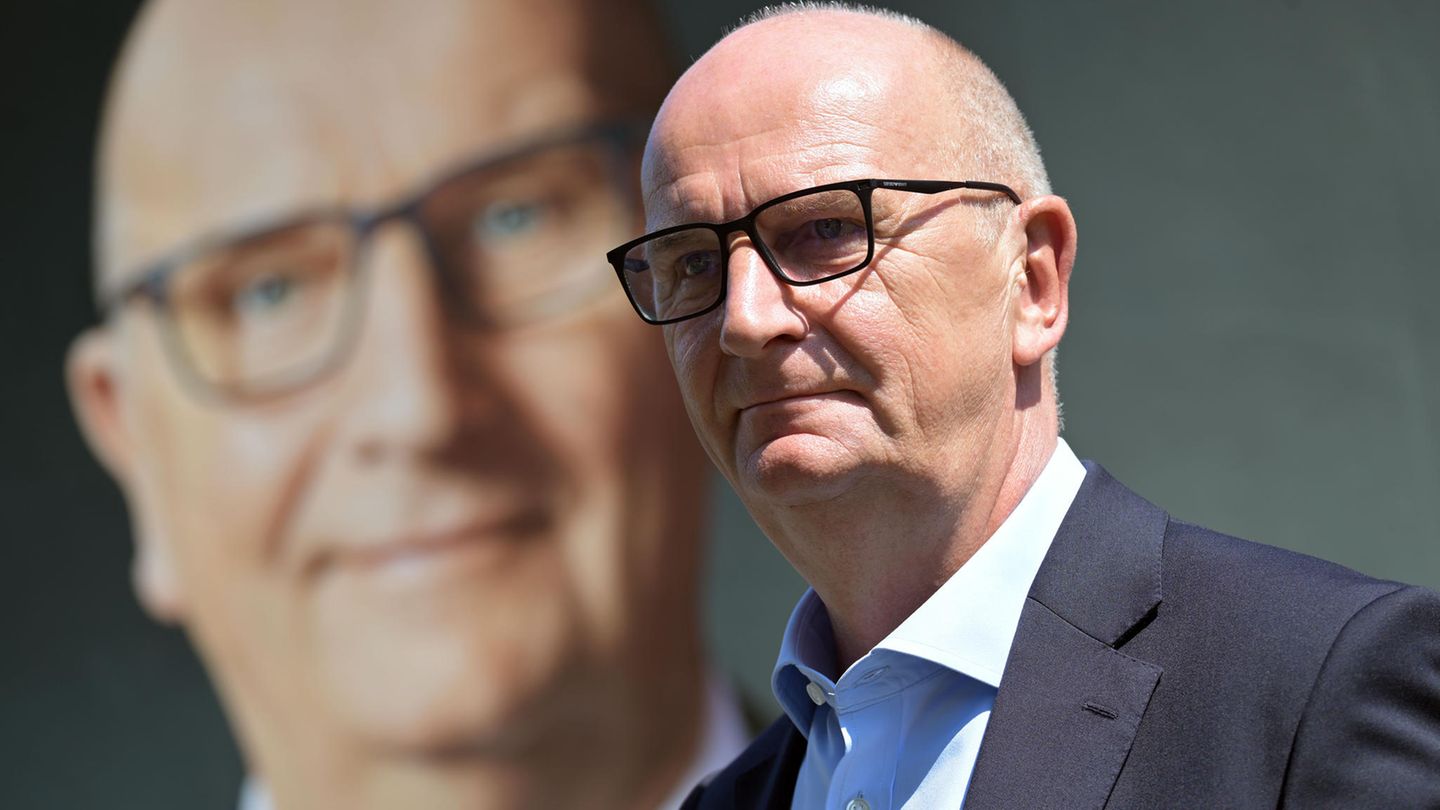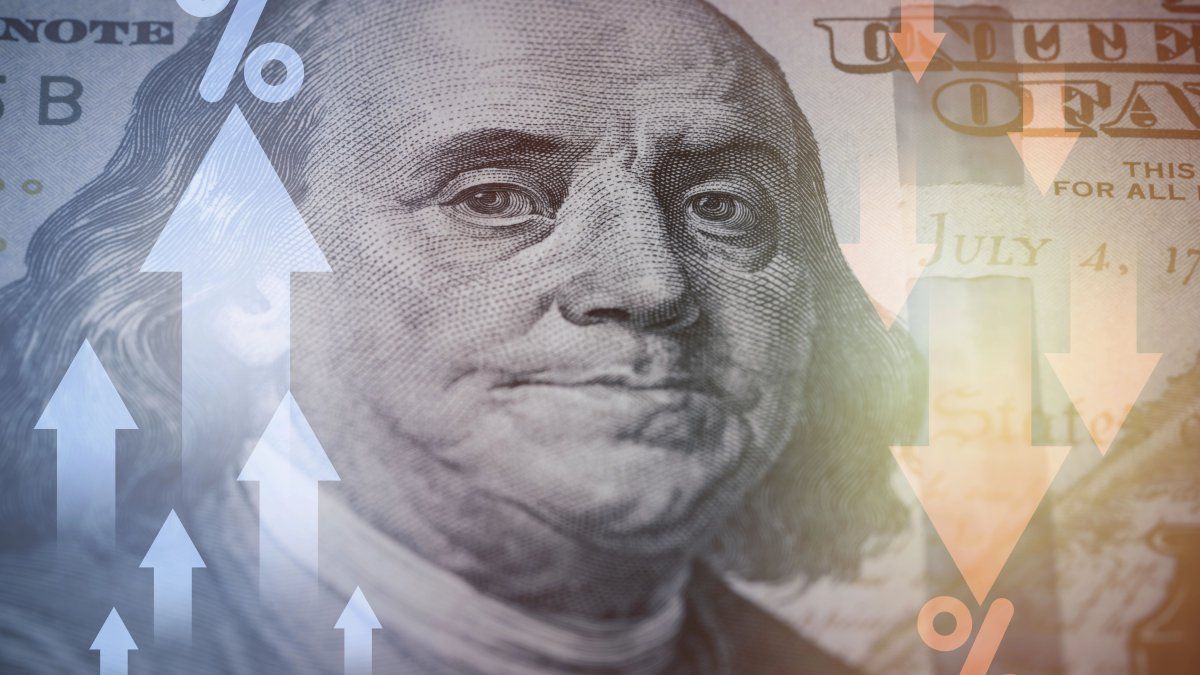The Social Democrats are nervous about the election in Brandenburg: Can Prime Minister Dietmar Woidke defend their bastion? And what will the result do to Scholz?
Dietmar Woidke is 17 minutes late, so he gets straight to the point. Now it’s “close to the wire,” Brandenburg’s Prime Minister tells the crowd on the festival grounds. The SPD has caught up with the AfD in the latest polls. “This is a decisive election,” Woidke shouts: “Us or them.”
Friday afternoon, the end of the election campaign in Brandenburg. The final spurt for Woidke – and the endgame for Olaf Scholz? The SPD is nervously looking towards Potsdam, to see what the results on Sunday could trigger in the party with a view to the federal election in a year’s time.
The pressure is rising, whisper SPD MPs in Berlin, and depending on the outcome, this pressure could find an outlet. Fierce personnel debates: Even top comrades don’t want to rule them out. Will it affect the party leadership? Cabinet members? Or even the Chancellor?
The 0.1 percent scenario
The historic turning point was averted in the state elections in Saxony and Thuringia. The SPD held on to the state parliaments – reduced to a meager single-digit number. But if Brandenburg, which has been firmly in Social Democratic hands since 1990, is lost, then a debate that was postponed out of consideration for the election campaign could finally gain momentum. Can the unpopular Olaf Scholz hold on as chancellor (candidate) if Woidke’s SPD ends up behind the AfD?
To win, Woidke is counting on maximum emphasis on himself and clear distancing from Berlin. A daring tactic that means that the Chancellor has practically nothing to gain from this election – except a breather from the constant murmuring about whether he can lead the SPD into another federal election campaign. More on that later.
According to recent polls, it will be a photo finish, with the SPD (27 percent) and AfD (28 percent) in a neck-and-neck race. Woidke, whom 59 percent of Brandenburgers want as prime minister, managed a similar comeback in 2019. He ultimately crossed the finish line as the winner, even with a lead of almost three percent over the right-wing populists.
Dietmar Woidke’s strategy, then and now: Dietmar Woidke.
The Prime Minister has made the election a vote on himself. If the AfD is ahead of the SPD, then he is gone, says Woidke, who has governed Brandenburg for eleven years. An ultimatum that is intended to ensure clarity. It’s me or them. Woidke was thus able to reinterpret the election campaign as a duel. His posters read: “If bald, then Woidke.”
Woidke is showing commitment, the SPD says with recognition, and is taking personal risks for the party – as if a certain Social Democrat in Berlin could take an example from this fighting spirit. However, Woidke’s all-or-nothing strategy carries a risk that is also causing people to shake their heads.
If his SPD were to fall just a hair’s breadth behind the AfD, even if it were only 0.1 percentage points, then Woidke would have to resign – or break his word. Even if he came second, the SPD would most likely continue to govern, and would probably even gain compared to the 2019 state election (26.2 percent). Ultimately, however, the comrades would still have to do without their popular state premier. Woidke has, in all probability, ruined his almost certain chance of keeping the state chancellery. Not everyone thinks that’s a smart move.
Dietmar Woidke keeps his distance from the Chancellor
Woidke thinks it is logical, after all, his work is also being voted on, not least because it is about Brandenburg. And only Brandenburg. That also means: not about Berlin.
The Prime Minister is keeping as much distance as possible from the constantly agitated capital, its pugnacious traffic light coalition and also from the unpopular head of government. When asked whether there would be joint campaign appearances with Scholz, Woidke simply told the “Handelsblatt”: “No.” The Brandenburg SPD has always been lucky to be able to rely on strong leaders of its own.
Ouch.
The aim of this clear demarcation is obvious: Sunday’s election should not be a lesson to the Chancellor. For the shunned Chancellor, this could mean that he himself would not benefit from an election victory for his SPD: If Woidke wins, it will be because he has distanced himself from the Berlin company, if he loses, it will be because of the Berlin company – some in the party see this as a self-fulfilling prophecy.
And so Scholz, who lives in Potsdam and has his constituency – which is also where Woidke’s state chancellery is located – went on a “summer trip” as a simple member of parliament. Visits to the film museum, visits to the bakery – but no visits to Woidke, let alone joint appearances on the big stage. Scholz was not allowed to give a speech at the SPD summer party in Potsdam.
Following the motto “No food, no fight”, the rest of the party’s prominent figures have apparently supported the election campaigns of the local SPD representatives. General Secretary Kevin Kühnert invited people to a kebab dinner in Potsdam, and co-party leader Lars Klingbeil invited people to a pizza in Werder (Havel). At Woidke’s election campaign finale, there were also bratwurst in a bun, but no top politicians from Berlin. “Perhaps more is at stake in this election than ever before,” said the Prime Minister. Woidke did not mention the traffic light coalition or his federal party at all.
In the evening, when the results of the state elections are announced, Olaf Scholz will also keep his distance from Berlin and Brandenburg. Inevitably: He is at the United Nations Future Summit in New York.
Source: Stern
I have been working in the news industry for over 6 years, first as a reporter and now as an editor. I have covered politics extensively, and my work has appeared in major newspapers and online news outlets around the world. In addition to my writing, I also contribute regularly to 24 Hours World.




